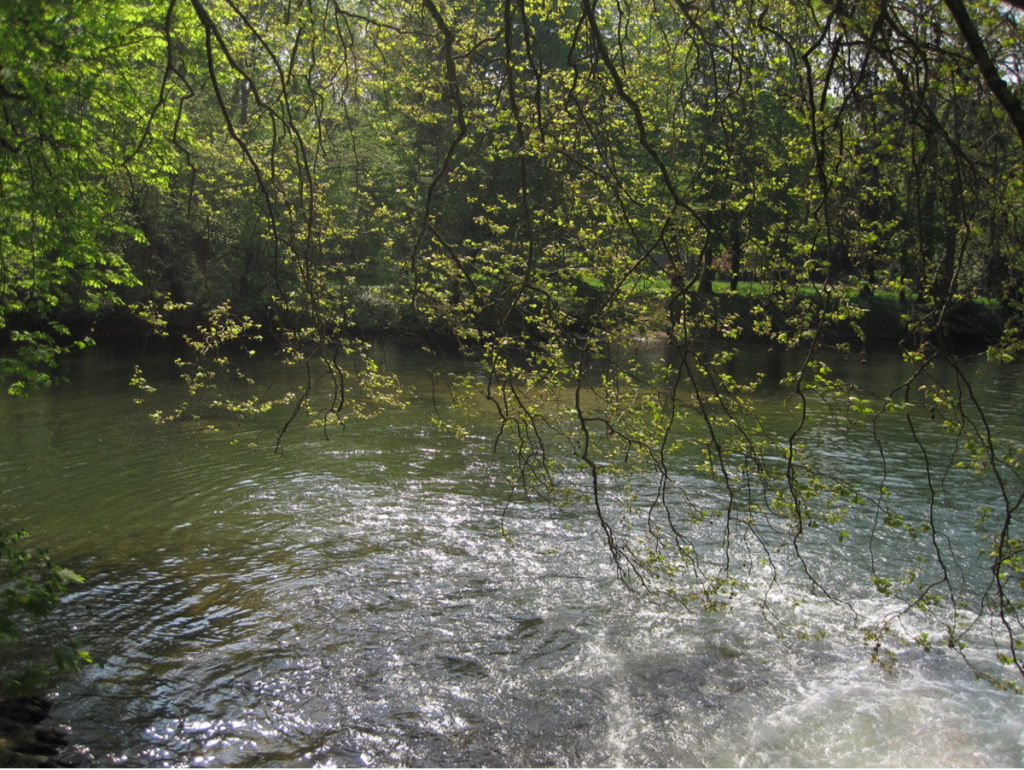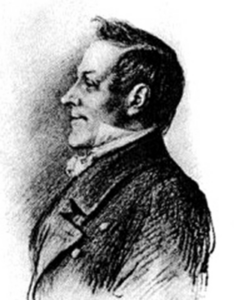By the river
(Poet's title: Am Strome)
Set by Schubert:
D 539
[March 1817]
Ist mir’s doch, als sei mein Leben
An den schönen Strom gebunden.
Hab ich Frohes nicht an seinem Ufer,
Und Betrübtes hier empfunden!
Ja du gleichest meiner Seele;
Manchmahl grün und glatt gestaltet;
Und zu Zeiten, herrschen Stürme,
Schäumend, unruhvoll, gefaltet.
Fließest zu dem fernen Meere,
Darfst allda nicht heimisch werden;
Mich drängt’s auch in mildre Lande,
Finde nicht das Glück auf Erden.
But it appears to me as if my life
Is bound up with this beautiful river.
Is it not the case that on its banks I have known something of joy
And I have experienced distress here?
Yes, you are similar to my soul;
Sometimes green and with a smooth surface,
And at other times, when storms dominate,
Foaming, disturbed, furrowed.
You are flowing towards the distant sea,
Unable to feel that you belong anywhere.
I too am being driven to a more gentle land –
I cannot find happiness on earth.
All translations into English that appear on this website, unless otherwise stated, are by Malcolm Wren. You are free to use them on condition that you acknowledge Malcolm Wren as the translator and schubertsong.uk as the source. Unless otherwise stated, the comments and essays that appear after the texts and translations are by Malcolm Wren and are © Copyright.
☙
Themes and images in this text:
By water – river banks The earth Foam and spray Green Here and there Home (Heimat) Joy Knots and bonds Near and far Rivers (Strom) Rough and smooth The sea Soul Storms
Like the river, the speaker seems to be at the mercy of external forces or uncontrollable drives. He even begins the text with a dative: ‘It appears to me‘, he says, rather than ‘I think’. He has had experiences of joy and suffering by the river, but we are not told if he has ever done anything there. Both he and the stream are being driven elsewhere; they have no say in the direction of travel.
All of this could suggest that the persona who is baring his soul to us feels overwhelmed by the situation, or finds it difficult to construct a strong ego or an identity that can take agency in the world. He is like many of the weak characters in existentialist literature who are said to live in ‘bad faith’ because they cannot cope with the freedom that is inherent in the human condition. According to Sartre, many of us are frustrated by the discovery that ‘existence precedes essence’. Although some objects in the world seem to have an inherent purpose (as is the case with tools and machines designed by humans to help us achieve particular aims), we ourselves seem to be born into a world where we have no clear function. We are thrown into a terrifying freedom to become what we choose to be.
Some people look at rivers and take different lessons from them. It is possible to think like an existentialist and then decide that the important lesson to derive from moving water is not to let yourself be carried away, not to live in bad faith, but to learn to swim against the current, to defy the waves, to be free (Schiller is the sort of poet who tended to come to such conclusions). Mayrhofer was not that sort of character. He looks at the stream and sees that what he has in common with it is the fact that it is subject to change. Depending on the circumstances he and it could appear calm and unruffled or turbulent. He and it are subject to unalterable drives: gravity inevitably takes the river to the distant sea and restlessness inevitably leads the poet to a different dimension, a gentler world that is not subject to the buffetting that is part of life on earth. In looking at the river, he accepts his fate.

☙
Original Spelling and notes on the text Am Strome Ist mir's doch, als sey mein Leben An den schönen Strom gebunden. Hab' ich Frohes nicht an seinem Ufer1, Und Betrübtes hier empfunden? Ja du gleichest meiner Seele; Manchmahl grün, und glatt gestaltet, Und zu Zeiten - herrschen Stürme2 - Schäumend, unruhvoll, gefaltet. Fließest zu dem3 fernen Meere, Darfst allda nicht heimisch werden. Mich drängt's auch in mildre Lande - Finde nicht das Glück auf Erden. 1 The published version (1824) of Mayrhofer's poem reads 'am Ufer' (by the bank) not 'an seinem Ufer' (by its bank). It is impossible to know if Schubert made the change when he made the setting or if he was working with an earlier draft of the poem. 2 1824: Winde (winds) 3 1824: fort zum (onwards to the)
Confirmed by Peter Rastl with Gedichte von Johann Mayrhofer. Wien. Bey Friedrich Volke. 1824, page 78.
To see an early edition of the text, go to page 78 [92 von 212] here: http://digital.onb.ac.at/OnbViewer/viewer.faces?doc=ABO_%2BZ177450902


